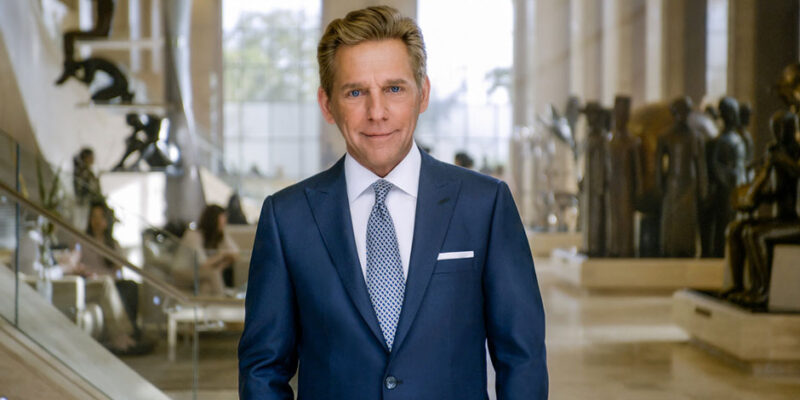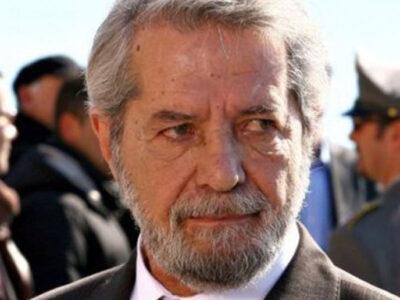Who is David Miscavige?
David Miscavige has been running the Church of Scientology since 1987, making him one of America’s most powerful yet controversial religious figures. His influence reaches well beyond church walls, touching Hollywood, politics, and international business dealings.
What makes Miscavige’s financial situation so intriguing isn’t just the numbers—it’s how those numbers tell a story about power, control, and the blurred lines between personal and organizational wealth in modern religious movements.
Most people can look up a CEO’s salary or a politician’s assets in public records. With Miscavige, that transparency simply doesn’t exist. His wealth is wrapped up in religious exemptions, corporate structures, and carefully managed public information that makes getting clear answers nearly impossible.
David Miscavige Net Worth: Why the Numbers Don’t Add Up
Here’s where things get interesting. Celebrity Net Worth puts David Miscavige’s personal wealth at around $1 million. That might sound reasonable until you consider he controls an organization worth billions.
Other estimates swing wildly higher—some suggest his net worth could reach $50 million. That’s a huge gap, and it’s not because researchers are being sloppy. The problem is that measuring Miscavige’s wealth requires understanding how religious organizations handle money.
Think about it this way: if your employer paid for your housing, food, transportation, security, and entertainment, what would your “net worth” really mean? You might have minimal personal assets while living like royalty. That’s essentially Miscavige’s situation.
Back in 1992, IRS documents showed Miscavige earned $62,683 in salary. His wife Shelly made $31,359 as his assistant. Those aren’t exactly Fortune 500 CEO numbers. But the same documents revealed the Church controlled $400 million in assets, including a $15 million yacht and $3.5 million in gold bars.
The Church covers virtually every aspect of Miscavige’s lifestyle. He doesn’t need to own a mansion when the organization provides luxury accommodations. He doesn’t need a private jet when church aircraft are always available. This arrangement keeps his personal assets low while ensuring he lives extremely well.
From Pennsylvania Kid to Religious Leader
David Miscavige’s path to wealth started in the most ordinary way possible. Born April 30, 1960, in Bristol Township, Pennsylvania, he grew up in a working-class family. His dad played trumpet, his mom raised the kids, and money was probably tight like it was for most families.
Everything changed in 1971 when the Miscaviges discovered Scientology. According to family accounts, a single Dianetics session supposedly cured young David’s severe asthma. Whether you believe that or not, it convinced his parents to dive headfirst into the organization.
The family didn’t just join—they moved to England to live at Scientology’s world headquarters. Twelve-year-old David became the youngest professional auditor in the organization’s history. That kind of early recognition doesn’t happen by accident. Someone was paying attention to this kid.
At 16, David made a choice that would define everything that followed. He dropped out of high school and moved to Florida to join the Sea Org, Scientology’s management elite. Most teenagers are worried about prom dates and college applications. David was committing his life to an organization that would eventually make him incredibly powerful.
His early jobs weren’t glamorous—delivering messages, maintaining grounds, serving food. But he caught L. Ron Hubbard’s attention and by 1977 was working directly with Scientology’s founder as a cameraman. That put him at the center of everything, learning how the organization really worked.
Where David Miscavige’s Money Actually Comes From
Understanding Miscavige’s wealth means looking beyond traditional salary structures. Yes, he earned $62,683 in 1992 according to IRS filings. But that number tells you almost nothing about his real financial situation.
The Church of Scientology operates through multiple corporate entities, and Miscavige sits at the top of this structure as Chairman of the Religious Technology Center. This position gives him control over Scientology’s most valuable assets—its copyrights and trademarks.
Every Scientology book sold, every course taught, every auditing session conducted generates revenue flowing through organizations under Miscavige’s authority. He doesn’t personally own these intellectual property rights, but controlling them represents a form of wealth that doesn’t show up on traditional balance sheets.
The Church’s financial arrangement with Miscavige is actually quite clever from a tax perspective. Instead of paying him a massive salary that would be subject to income taxes, they provide benefits that qualify as legitimate organizational expenses. His housing, transportation, food, security, and entertainment all get covered as business necessities.
This setup offers major advantages. Miscavige enjoys a millionaire’s lifestyle while maintaining the appearance of modest personal wealth. The Church gets tax deductions for expenses that directly benefit its leader. It’s a win-win arrangement that would be difficult to replicate in most other contexts.
The Scientology Empire: Billions Under One Man’s Control
To really understand Miscavige’s financial influence, you need to see the empire he controls. The Church reported $400 million in assets back in 1992. Today, estimates suggest the organization’s wealth has grown into the billions.
Gold Base serves as the crown jewel of this empire. Spanning over 520 acres in California’s Riverside County, this compound functions as Scientology’s international headquarters and Miscavige’s primary residence. The property alone is worth hundreds of millions.
The compound includes Cine Castle, a 74,000-square-foot film studio built like a Scottish castle at a cost exceeding $10.8 million. This isn’t just for show—it houses sophisticated equipment for producing Scientology’s promotional materials. But it also reflects Miscavige’s taste for grandeur.
Then there’s Bonnie View Mansion, originally built for L. Ron Hubbard but never occupied by him. The place sits perfectly maintained, waiting for Hubbard’s prophesied return. It features a lap pool, movie theater, and garage full of Hubbard’s preserved cars. While Miscavige doesn’t technically own it, he has full access to its amenities.
The compound also includes luxury guest accommodations where celebrities like Tom Cruise stay during visits. These “G Units” and executive villas rival the world’s finest resorts. Miscavige uses them for private retreats and high-level meetings, essentially treating them as personal vacation homes.
Beyond Gold Base, Scientology owns valuable real estate worldwide. The organization has invested heavily in “Ideal Orgs”—impressive buildings in major cities designed to project success. Each represents millions in real estate investments, all under Miscavige’s oversight.
Living Like a Billionaire on a Religious Leader’s Salary
David Miscavige’s daily life would make most Fortune 500 CEOs jealous, even though his official salary remains modest. The Church funds a lifestyle that few people could afford even with substantial personal wealth.
At Gold Base, Miscavige enjoys accommodations that rival luxury resorts. His living quarters feature custom furnishings, gourmet kitchens, and private recreational areas. The compound includes a private lake, sports courts, baseball diamonds, and a golf course—though regular Sea Org members reportedly have limited access to these amenities.
Transportation costs alone would bankrupt most people. Miscavige travels via private aircraft for both business and personal trips, with the Church covering all expenses. These flights often connect to luxury accommodations worldwide, as Scientology maintains facilities and relationships globally.
Security represents another major expense category. Miscavige operates with round-the-clock protection that goes far beyond typical religious leader requirements. Gold Base features high fences with razor wire, motion sensors, and 24/7 surveillance systems. This level of security costs millions annually.
Even his meals reflect elevated standards. Professional chefs prepare gourmet food using premium ingredients. Special events feature expensive catering and entertainment that would be prohibitively costly for most individuals. The Church also funds his wardrobe, including custom-tailored suits for public appearances.
Perhaps most significantly, Miscavige enjoys complete freedom from typical financial worries. Housing, utilities, insurance, medical care—virtually every expense gets handled by the organization. This arrangement eliminates the financial stress that affects most people regardless of their income level.
Legal Problems That Could Cost Millions
Miscavige’s financial future faces serious threats from mounting legal challenges. These aren’t just nuisance lawsuits—they represent potential existential threats to the financial empire he’s built over decades.
The most serious allegations involve human trafficking, forced labor, and abuse within the Sea Org. Multiple lawsuits filed since 2019 name Miscavige as a defendant, seeking substantial monetary damages. These cases allege systematic violations of federal labor laws and human rights protections.
One significant case involves former Scientologists claiming they were forced to work excessive hours for minimal pay while being prevented from leaving. The plaintiffs want not just money but changes to Scientology’s labor practices that could fundamentally alter its financial structure.
Miscavige’s legal team has used various tactics to avoid being served with legal documents, frustrating judges and generating negative publicity. One judge described the situation as reaching “a new level of craziness.” These evasion strategies might work short-term but create additional legal costs and reputational damage.
FBI investigations into Scientology’s practices under Miscavige’s leadership haven’t resulted in criminal charges yet, but they create ongoing uncertainty. Federal investigations can lead to asset freezes, fines, and other financial consequences that could dramatically impact both personal and organizational wealth.
Legal defense costs represent substantial ongoing expenses. High-profile litigation requires teams of experienced attorneys, expert witnesses, and extensive discovery processes. While the Church likely covers these costs, they represent millions that could otherwise fund operations or personal benefits.
The reputational damage also has financial implications. Negative publicity affects membership recruitment, retention, and donations. As Scientology’s membership reportedly declines, revenue streams face pressure that could eventually impact Miscavige’s lifestyle and financial security.
Family Troubles and Personal Costs
The personal cost of Miscavige’s rise to power becomes clear when examining his family relationships. His marriage to Michele “Shelly” Miscavige in 1982 initially represented a powerful partnership within Scientology’s hierarchy, but it’s since become a source of controversy.
Shelly Miscavige hasn’t been seen publicly since 2007, sparking widespread concern. Former Scientologist Leah Remini filed a missing persons report in 2013, though police concluded their investigation by stating she was “alive and safe.” Her continued absence raises questions about personal dynamics within the Miscavige household.
The situation with his wife creates ongoing legal and public relations challenges requiring constant management. These issues generate costs for security, legal counsel, and reputation management that impact organizational resources and indirectly affect Miscavige’s financial position.
Multiple family members have left Scientology and become vocal critics. His father Ron left in 2012 and published a tell-all book. His niece Jenna left in 2005 and wrote “Beyond Belief: My Secret Life Inside Scientology And My Harrowing Escape” in 2013.
These family defections create ongoing financial liabilities. Former family members possess intimate knowledge of Scientology’s operations and Miscavige’s personal conduct. Their public statements and legal testimonies can support lawsuits and investigations threatening the organization’s assets and tax-exempt status.
The estrangement also eliminates potential sources of personal support and succession planning. Unlike traditional business leaders who might rely on family for advice or eventual succession, Miscavige operates in increasing isolation.
His relationship with celebrities like Tom Cruise provides some compensation for family estrangement. Cruise’s continued membership and public support lend credibility to the organization. However, these relationships require ongoing investment in special accommodations and services representing significant expenses.
What’s Next for David Miscavige’s Wealth?
Looking ahead, Miscavige’s financial future faces unprecedented challenges that could fundamentally alter his wealth and lifestyle. The convergence of legal pressures, declining membership, and increased scrutiny creates a perfect storm threatening his financial foundation.
Ongoing litigation poses the most immediate threat. As courts become less tolerant of evasion tactics and more cases proceed to trial, the potential for substantial monetary judgments increases. Large damage awards could force Scientology to liquidate assets or restructure finances in ways that might reduce Miscavige’s access to luxury amenities.
Scientology’s membership decline represents a longer-term but equally serious challenge. Reports suggest active membership has decreased significantly from its peak, reducing revenue from courses, auditing sessions, and donations. This declining income stream could eventually force difficult decisions about maintaining expensive properties and lifestyle expenditures.
The organization’s aging membership base creates additional succession planning challenges. As longtime members pass away, their estate donations have historically provided significant revenue. However, family estrangements and negative publicity may reduce these bequests, further pressuring finances.
Regulatory scrutiny continues intensifying, with various government agencies examining Scientology’s practices and tax-exempt status. Any changes to tax status could dramatically impact the organization’s financial position and ability to fund Miscavige’s lifestyle.
International pressure adds another dimension. Several countries have restricted or banned Scientology operations, limiting global expansion and revenue opportunities. These restrictions could eventually affect fund flows supporting Miscavige’s lifestyle and organizational operations.
Despite these challenges, Miscavige’s financial position remains relatively secure short-term. Scientology’s substantial assets provide a buffer against immediate threats, and his control over organizational structure gives him significant influence over financial decisions.
The ultimate question may not be whether David Miscavige’s net worth will change, but whether traditional wealth measures remain relevant for someone whose power and lifestyle depend entirely on maintaining control over a controversial religious organization. His financial future is inextricably linked to Scientology’s survival and success, making his personal wealth inseparable from the organization’s institutional health.
Understanding David Miscavige’s net worth requires looking beyond simple dollar figures to see the complex web of power, control, and financial arrangements that define his position. Whether that’s worth $1 million or $50 million may be less important than recognizing how religious organizations can provide their leaders with extraordinary wealth and lifestyle benefits while maintaining the appearance of modest personal assets.

















